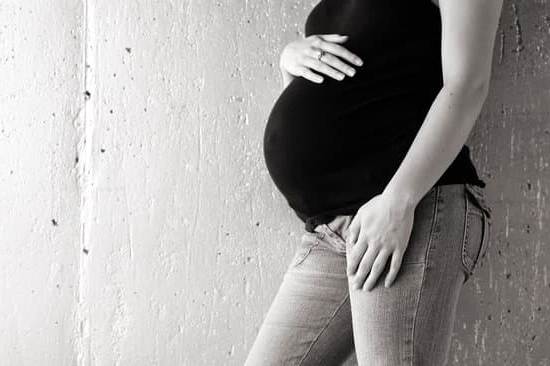Is bloating a sign of pregnancy? Many women wonder about this as they start to experience early signs of pregnancy. Understanding these signs is crucial for those who are trying to conceive or suspect that they may be pregnant. This article will explore the commonly asked question, “Is bloating a sign of pregnancy?” and provide an in-depth look at the early symptoms of pregnancy.
Pregnancy brings about various changes in the body, and one common symptom that many women experience is bloating. This article aims to shed light on whether bloating can indeed be considered a sign of pregnancy, and how it may be linked to hormonal changes in the body. By understanding these early signs, women can better recognize the possibility of being pregnant and seek appropriate care.
In addition to addressing the question of whether bloating is a sign of pregnancy, this article will also delve into other common early signs, how to differentiate between normal bloating and pregnancy-related bloating, and offer tips for managing this symptom through diet and lifestyle changes. With this information, individuals will be better equipped to navigate the early stages of pregnancy and make informed decisions regarding their health.
What Causes Bloating During Pregnancy
During pregnancy, hormonal changes in the body can lead to bloating as one of the early symptoms. The increase in progesterone levels is primarily responsible for causing bloating during pregnancy. This hormone relaxes the muscles in the body, including the digestive tract, which may slow down digestion and lead to gas and bloating.
Common Hormonal Changes Causing Bloating
- Rise in progesterone levels
- Impact on muscle relaxation
- Slowed down digestion process
- Increase in gas production
In addition to progesterone, the hormone HCG (human chorionic gonadotropin) produced by the placenta can also contribute to bloating during early pregnancy. This hormone not only supports the pregnancy but also affects the gastrointestinal system, leading to bloating and constipation.
Other Hormonal Changes Affecting Bloating
- HCG impact on digestive system
- Influence on bowel movements
- Possible increase in abdominal pressure
It is important for women experiencing bloating to understand that it is a common symptom during early pregnancy due to these hormonal changes. While uncomfortable, it is typically not a cause for concern and can be managed through various lifestyle and dietary adjustments. Understanding the role of hormones in causing bloating during pregnancy can help expectant mothers differentiate between normal bloating and potential signs of other health issues.
Is Bloating a Common Early Pregnancy Symptom
Bloating is a common occurrence for most people at some point in their lives. However, many people wonder if bloating is a sign of pregnancy. It is indeed true that bloating can be a symptom of early pregnancy. Here’s why:
1. Hormonal Changes: During early pregnancy, the body experiences a surge in hormones, particularly progesterone. This hormone relaxes the muscles in the digestive tract, leading to slower digestion and potentially causing bloating.
2. Increased Blood Flow: The increase in blood flow during pregnancy can also cause the stomach and intestines to expand, leading to feelings of fullness and discomfort.
3. Constipation: Hormonal changes can also lead to constipation, which can contribute to bloating and discomfort.
To address these misconceptions about bloating as an early pregnancy symptom, it’s important to note that not all cases of bloating are indicative of pregnancy. Bloating can be caused by a variety of factors such as dietary choices, menstrual cycle changes, or gastrointestinal issues.
If you are experiencing bloating along with other symptoms such as missed periods, nausea, breast tenderness or frequent urination, it may be worth taking a pregnancy test or consulting with your healthcare provider to determine if pregnancy is the cause of your bloating experience.
Remember every individual is different and will experience different symptoms during early pregnancy which is why seeking medical advice is crucial when trying to differentiate between normal bloating and potential signs of pregnancy.
How to Differentiate Between Normal Bloating and Bloating During Pregnancy
Bloating is a common symptom experienced by many women, and it can be particularly confusing for those who are trying to conceive or suspect they may be pregnant. Understanding the difference between normal bloating and bloating as a sign of pregnancy is crucial for early detection and proper prenatal care.
Normal bloating, which is not associated with pregnancy, is often caused by factors such as consuming gas-producing foods, swallowing air while eating, or hormonal fluctuations during the menstrual cycle. It typically resolves on its own within a few days and does not persist for an extended period of time.
On the other hand, bloating as a sign of pregnancy is often related to the hormonal changes that occur when a woman becomes pregnant. The increase in progesterone levels can lead to relaxation of the digestive system, causing food to pass more slowly through the intestines and leading to excess gas and bloating. This type of bloating may also be accompanied by other early pregnancy symptoms such as breast tenderness, nausea, fatigue, and frequent urination.
It’s important to note that while bloating can be a sign of pregnancy, it should not be used as the sole indicator. Confirming pregnancy through a home pregnancy test or blood test is the best way to determine if you are indeed pregnant. If you suspect you may be pregnant due to bloating and other symptoms, it’s advisable to consult with your healthcare provider for further guidance and care.
| Signs | Description |
|---|---|
| Bloating in Early Pregnancy | Can occur due to hormonal changes causing relaxation of the digestive system |
| Normal Bloating | Caused by factors such as gas-producing foods or hormonal fluctuations during the menstrual cycle |
| Confirmation Tests | Home pregnancy test or blood test recommended for confirming pregnancy |
Other Early Signs of Pregnancy to Look Out For
Early signs of pregnancy can vary from woman to woman, and may not always be as obvious as a missed period. Understanding and recognizing these symptoms is crucial for those who are actively trying to conceive or suspect they may be pregnant. In addition to bloating, there are several other early signs of pregnancy that women should be aware of.
Breast Changes
One of the most common early signs of pregnancy is changes in the breasts. These changes can include tenderness, soreness, and enlargement of the breasts. Some women may also notice their nipples becoming more sensitive or darker in color.
Fatigue
Feeling more tired than usual is another early sign of pregnancy that many women experience. This fatigue is often attributed to the hormonal changes and increased demand on the body during early pregnancy.
Nausea and Morning Sickness
Nausea, particularly in the morning but potentially at any time throughout the day, is a classic early sign of pregnancy. While not all women experience morning sickness, it is a well-known symptom due to its prevalence in early pregnancy.
Understanding these additional early signs of pregnancy can help women recognize when their bodies may be undergoing significant changes associated with pregnancy. It is important to note that individual experiences may vary, and some women may not experience these symptoms at all.
Tips for Managing Bloating During Pregnancy
Bloating is a common symptom of pregnancy and can often be experienced in the early stages. This discomfort is usually caused by hormonal changes in the body, particularly an increase in progesterone levels. As the body prepares for pregnancy, progesterone relaxes smooth muscle tissue throughout the body, including the gastrointestinal tract. This relaxation can lead to slower digestion and increased gas production, resulting in bloating.
It’s important for pregnant individuals to differentiate between normal bloating and bloating associated with pregnancy. While some degree of bloating is typical during early pregnancy, excessive or persistent bloating could be a sign of a larger issue such as ectopic pregnancy or ovarian cysts. Therefore, it is crucial for pregnant individuals to be aware of their symptoms and consult their healthcare provider if they have any concerns.
In order to manage bloating during pregnancy, there are several diet and lifestyle changes that can be implemented. Eating smaller, more frequent meals throughout the day can help reduce bloating by easing the digestive process. Pregnant individuals should also prioritize staying hydrated and engaging in light physical activity, such as walking or yoga, to help alleviate symptoms of bloating. Additionally, avoiding foods that are known to exacerbate bloating, such as carbonated beverages and high-sodium foods, can also be beneficial.
| Signs of Pregnancy | Managing Bloating During Pregnancy |
|---|---|
| Breast tenderness | Eat smaller, more frequent meals |
| Frequent urination | Stay hydrated |
| Missed period | Engage in light physical activity |
When to Consult a Doctor
When to Consult a Doctor
If you are experiencing bloating along with other symptoms such as severe abdominal pain, fever, diarrhea, or vomiting, it is important to consult a doctor immediately. These could be signs of a more serious condition such as an ectopic pregnancy, miscarriage, or gastrointestinal issues.
Risk Factors to Consider
It is also important to consider any preexisting conditions that could exacerbate bloating during pregnancy. Conditions such as irritable bowel syndrome (IBS), celiac disease, or endometriosis can all contribute to increased bloating and discomfort during pregnancy.
Medical Advice and Support
In some cases, excessive bloating during pregnancy can be a sign of preeclampsia or gestational diabetes. Therefore, it is important for pregnant individuals to attend all prenatal appointments and communicate any concerns about bloating with their healthcare provider. Regular check-ups and open communication with your doctor are essential for monitoring the health of both the mother and the baby. If bloating becomes severe and persistent, seeking medical advice from a healthcare professional is crucial in addressing any potential complications.
Conclusion
In conclusion, it is important to recognize bloating as a potential sign of pregnancy. While bloating can often be dismissed as a normal part of life, it is crucial to understand that it could also be an early indication of pregnancy. The hormonal changes that occur during pregnancy can lead to increased gas and bloating, making it essential to recognize these symptoms and consider the possibility of being pregnant.
It is essential for women to be aware that bloating is indeed a common early symptom of pregnancy. Addressing any misconceptions about bloating during pregnancy can help individuals better understand their body and potentially recognize the signs of pregnancy at an early stage. By acknowledging and educating oneself on these early signs, individuals can take proactive steps towards their reproductive health.
In summary, recognizing bloating as a potential sign of pregnancy allows individuals to seek appropriate medical care and support. Understanding the difference between normal bloating and bloating during pregnancy, in addition to knowing other early signs of pregnancy, empowers individuals to make informed decisions about their health. It is always recommended to consult with a healthcare provider if there are concerns about potential pregnancy or if there are any unusual symptoms experienced.
Frequently Asked Questions
How Early Does Bloating Start in Pregnancy?
Bloating can start as early as the first trimester of pregnancy due to hormonal changes and the expanding uterus putting pressure on the digestive system. This can cause discomfort and a feeling of fullness.
What Symptoms Do You Have at 1 Week Pregnant?
At 1 week pregnant, you may not experience many physical symptoms yet, as it’s very early in the pregnancy. However, some women may notice light spotting or cramping as the fertilized egg implants in the uterus.
Is My Pregnancy Showing or Am I Just Bloated?
In the early stages of pregnancy, around 4-12 weeks, it can be hard to distinguish between bloating and a baby bump. Bloating is common due to hormonal changes, while a baby bump typically becomes more noticeable later on in the pregnancy when the uterus expands.

Welcome to my fertility blog. This is a space where I will be sharing my experiences as I navigate through the world of fertility treatments, as well as provide information and resources about fertility and pregnancy.





